Speakers' biographies
Emeritus Professor Leslie Brent
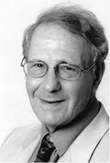 Leslie Brent is Emeritus Professor of Immunology at the University of London. He is an eminent immunologist in the field of tissue and organ transplantation. He was a member of the pioneering three man team (Peter Medawar, Rupert Billingham and Leslie Brent) who established and studied the phenomenon of immunological tolerance which is so vital to clinical organ transplantation and, of course, the immunology of pregnancy. Its discovery led to the award of the Nobel Prize in Medicine and Physiology to Sir Peter Medawar in 1960. He went on to become Professor of Zoology at Southampton University and spent the last 20 years of his academic life as Professor of Immunology at St. Mary’s Hospital Medical School, Paddington, where he and his team studied, among other topics, how to induce immunological tolerance in adult mice.
Leslie Brent is Emeritus Professor of Immunology at the University of London. He is an eminent immunologist in the field of tissue and organ transplantation. He was a member of the pioneering three man team (Peter Medawar, Rupert Billingham and Leslie Brent) who established and studied the phenomenon of immunological tolerance which is so vital to clinical organ transplantation and, of course, the immunology of pregnancy. Its discovery led to the award of the Nobel Prize in Medicine and Physiology to Sir Peter Medawar in 1960. He went on to become Professor of Zoology at Southampton University and spent the last 20 years of his academic life as Professor of Immunology at St. Mary’s Hospital Medical School, Paddington, where he and his team studied, among other topics, how to induce immunological tolerance in adult mice.
Professor Fiona Powrie, University of Oxford, UK
Professor David Klatzmann
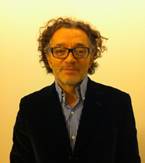 David Klatzmann received his MD and PhD from the Pierre & Marie Curie Medical School, Paris (France). He is Professor of Immunology and Chairman of the Inflammation-Immunopathology-Biotherapy Department at the Pierre & Marie Curie Medical School, Sorbonne University. His research interests are in translational Immunology, with a special focus on Regulatory T cells. He has had a long standing interest in comparing the role of Tregs in pregnancy and cancer. He and his group pioneered low-dose IL-2 immunotherapies
David Klatzmann received his MD and PhD from the Pierre & Marie Curie Medical School, Paris (France). He is Professor of Immunology and Chairman of the Inflammation-Immunopathology-Biotherapy Department at the Pierre & Marie Curie Medical School, Sorbonne University. His research interests are in translational Immunology, with a special focus on Regulatory T cells. He has had a long standing interest in comparing the role of Tregs in pregnancy and cancer. He and his group pioneered low-dose IL-2 immunotherapies
Dr Judith Cartwright
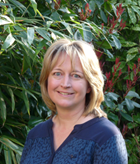 Judith Cartwright received a PhD in Immunology from the University of London. She was appointed as a Lecturer at St. George’s, University of London in 1999 and became a Reader in Cell Biology in 2007. Her research interests are in the regulation of cellular and molecular events at the maternal-fetal interface in normal pregnancies and those complicated by pre-eclampsia. Her team has been funded by the BHF, MRC, Wellcome Trust and Action Medical Research.
Judith Cartwright received a PhD in Immunology from the University of London. She was appointed as a Lecturer at St. George’s, University of London in 1999 and became a Reader in Cell Biology in 2007. Her research interests are in the regulation of cellular and molecular events at the maternal-fetal interface in normal pregnancies and those complicated by pre-eclampsia. Her team has been funded by the BHF, MRC, Wellcome Trust and Action Medical Research.
Dr Francesco Colucci, University of Cambridge, UK
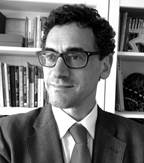 Francesco Colucci is a Reader in Immunology at the Department of Obstetrics and Gynaecology, University of Cambridge and Director of preclinical studies and Fellow at King's College, Cambridge. Francesco trained at the University of Bari Medical School, where he earned a MD. He then defended a thesis on autoimmune diabetes and was awarded a PhD at the University of Umea. His postdoctoral training and first junior position were at the Necker Hospital and The Pasteur Institute both in Paris. He moved to the Babraham Institute, Cambridge in 2004 and then to the University in 2010. He has contributed to understanding the development and functions of natural killer cells and, lately, of uterine natural killer cells and how they regulate fetal growth through interactions with trophoblast. He serves on the Board of Managers at the Centre for Trophoblast Research in Cambridge and on the Advisory Board at the Advanced School of Immunology Ruggero Ceppellini in Naples.
Francesco Colucci is a Reader in Immunology at the Department of Obstetrics and Gynaecology, University of Cambridge and Director of preclinical studies and Fellow at King's College, Cambridge. Francesco trained at the University of Bari Medical School, where he earned a MD. He then defended a thesis on autoimmune diabetes and was awarded a PhD at the University of Umea. His postdoctoral training and first junior position were at the Necker Hospital and The Pasteur Institute both in Paris. He moved to the Babraham Institute, Cambridge in 2004 and then to the University in 2010. He has contributed to understanding the development and functions of natural killer cells and, lately, of uterine natural killer cells and how they regulate fetal growth through interactions with trophoblast. He serves on the Board of Managers at the Centre for Trophoblast Research in Cambridge and on the Advisory Board at the Advanced School of Immunology Ruggero Ceppellini in Naples.
Professor Paul Moss
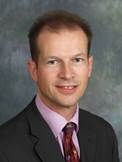 Paul Moss is Professor of Haematology and Head of the School of Cancer Sciences at the University of Birmingham. He is Chair of the Infections and Immunity Board at the Medical Research Council where he also serves as a member of the Strategy Board. Professor Moss’s research programme is within the immunology of human disease with a particular interest in viral, cancer and reproductive immunology.
Paul Moss is Professor of Haematology and Head of the School of Cancer Sciences at the University of Birmingham. He is Chair of the Infections and Immunity Board at the Medical Research Council where he also serves as a member of the Strategy Board. Professor Moss’s research programme is within the immunology of human disease with a particular interest in viral, cancer and reproductive immunology.
Dr Tamara Tilburgs
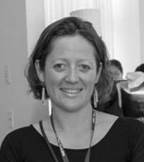 TamaraTilburgs (Ph.D.) is research associate working with Prof. Jack Strominger at Harvard University, Cambridge, MA, USA. Dr. Tilburgs received her Ph.D. degree in Immunology from Leiden University, Leiden, Netherlands in 2008 where she studied regulatory T cells and effector T cells at the maternal-fetal interface. The central theme of her research is the characterization of fetal HLA-G+ HLA-C+ extravillous trophoblasts and their interaction with maternal decidual immune cells. She set up new techniques to isolate and culture the rare HLA-G+ HLA-C+ extravillous trophoblasts as well as maternal decidual immune cells (NK cells, Macrophages, CD8+ effector and CD4+ regulatory T cells) from human placental tissue. Her focus is to understand maternal-fetal immune tolerance and identify factors that prevent immune rejection of fetal and placental tissues. This will enhance our understanding of how the maternal immune system establishes tolerance to fetal allo-antigens while maintaining immunity to infections. It may also lead to protocols that may predict of prevent severe pregnancy complications such as recurrent miscarriages, preterm delivery and pre-eclampsia.
TamaraTilburgs (Ph.D.) is research associate working with Prof. Jack Strominger at Harvard University, Cambridge, MA, USA. Dr. Tilburgs received her Ph.D. degree in Immunology from Leiden University, Leiden, Netherlands in 2008 where she studied regulatory T cells and effector T cells at the maternal-fetal interface. The central theme of her research is the characterization of fetal HLA-G+ HLA-C+ extravillous trophoblasts and their interaction with maternal decidual immune cells. She set up new techniques to isolate and culture the rare HLA-G+ HLA-C+ extravillous trophoblasts as well as maternal decidual immune cells (NK cells, Macrophages, CD8+ effector and CD4+ regulatory T cells) from human placental tissue. Her focus is to understand maternal-fetal immune tolerance and identify factors that prevent immune rejection of fetal and placental tissues. This will enhance our understanding of how the maternal immune system establishes tolerance to fetal allo-antigens while maintaining immunity to infections. It may also lead to protocols that may predict of prevent severe pregnancy complications such as recurrent miscarriages, preterm delivery and pre-eclampsia.
Dr Marijke Faas
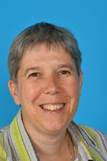 Marijke Faas is Associate Professor at the University Medical Centre Groningen, heading the research group “Immunoendocrinology”. She studies how maternal local and peripheral immune responses adapt to pregnancy and which pregnancy factors induce these adaptations. This is done in both human and animal models. Moreover, an important focus in her research line is how maladaptations of the immune response or activation of the immune response influence pregnancy and induce pregnancy complications such as preeclampsia.
Marijke Faas is Associate Professor at the University Medical Centre Groningen, heading the research group “Immunoendocrinology”. She studies how maternal local and peripheral immune responses adapt to pregnancy and which pregnancy factors induce these adaptations. This is done in both human and animal models. Moreover, an important focus in her research line is how maladaptations of the immune response or activation of the immune response influence pregnancy and induce pregnancy complications such as preeclampsia.
Website: http://www.rug.nl/research/pathology/medbiol/research/tx_ie/
Professor Chris Redman, University of Oxford, UK
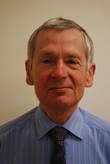 Chris Redman has worked in Obstetric Medicine and investigated the pathogenesis, detection, prevention and treatment of pre-eclampsia since 1970. He joined the Nuffield Department of Obstetrics and Gynaecology, University of Oxford in 1976 as a University Lecturer and Consultant in Obstetric Medicine and became a Clinical Professor in 1992. In addition to his research interests he created the High Risk Service in the Women’s Centre and many of its associated clinics. He is a Fellow ad eundum of the Royal College of Obstetricians and Gynaecologists and recipient of the Chesley Award of the International Society for the Study of Hypertension in Pregnancy (2000), the Barnes Award, of the International Society of Obstetric Medicine (2002), ex-President of the International Society for the Study of Hypertension in Pregnancy (2006-2008) and Founder and Trustee of the charity Action on Pre-eclampsia.
Chris Redman has worked in Obstetric Medicine and investigated the pathogenesis, detection, prevention and treatment of pre-eclampsia since 1970. He joined the Nuffield Department of Obstetrics and Gynaecology, University of Oxford in 1976 as a University Lecturer and Consultant in Obstetric Medicine and became a Clinical Professor in 1992. In addition to his research interests he created the High Risk Service in the Women’s Centre and many of its associated clinics. He is a Fellow ad eundum of the Royal College of Obstetricians and Gynaecologists and recipient of the Chesley Award of the International Society for the Study of Hypertension in Pregnancy (2000), the Barnes Award, of the International Society of Obstetric Medicine (2002), ex-President of the International Society for the Study of Hypertension in Pregnancy (2006-2008) and Founder and Trustee of the charity Action on Pre-eclampsia.
Professor Andreas Meinhardt
 Andreas Meinhardt obtained his PhD in Human Biology from Philipps-University of Marburg. After a postdoctoral stint at Monash University in Melbourne, Australia, he returned to Marburg. Since 2001 he has been Professor of Anatomy and Cell Biology at Justus-Liebig-University Giessen. His research interest is reproductive immunology with focus on the understanding of infection and inflammation of the male genital tract as a cause of infertility and the anti-inflammatory roles of androgens. Since April 2013 he is the spokesperson of the IRTG (International Research Training Group) Giessen-Monash (“Molecular Pathogenesis of Male Reproductive Disorders”).
Andreas Meinhardt obtained his PhD in Human Biology from Philipps-University of Marburg. After a postdoctoral stint at Monash University in Melbourne, Australia, he returned to Marburg. Since 2001 he has been Professor of Anatomy and Cell Biology at Justus-Liebig-University Giessen. His research interest is reproductive immunology with focus on the understanding of infection and inflammation of the male genital tract as a cause of infertility and the anti-inflammatory roles of androgens. Since April 2013 he is the spokesperson of the IRTG (International Research Training Group) Giessen-Monash (“Molecular Pathogenesis of Male Reproductive Disorders”).
Professor Yuan Qing Yao
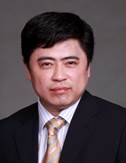 Yao Yuan-Qing is a professor in Department of Obstetrics and Gynecology, General Hospital of PLA, China and a professor in Nankai University, China. Professor Yao is a member of executive committee of Society of Reproductive Medicine of Chinese Medical Association. He is also a member of editor committee of several national journals, including: Chinese Journal of Obstetrics and Gynecology, Chinese Journal of Practical Obstetrics and Gynecology and Chinese Journal of Clinical Obstetrics and Gynecology. He graduated in the Fourth Military Medical University, Xian, China in 1984 and received his Ph D degree in University of Hong Kong in 1999. He worked as postdoctoral researcher in University of Oxford from 2002 to 2004. Professor Yao’s clinical expertise and research interests are minimally invasive surgery of gynecological cancer, assisted reproductive techniques and molecular mechanism of preimplantation embryo development. He performed the first case of robotic radical hysterectomy in China. Professor Yao’s research has supported by National Natural Science Foundation of China, Major State Basic Research Development Program of China. He published more than 50 papers in peer reviewed international journals.
Yao Yuan-Qing is a professor in Department of Obstetrics and Gynecology, General Hospital of PLA, China and a professor in Nankai University, China. Professor Yao is a member of executive committee of Society of Reproductive Medicine of Chinese Medical Association. He is also a member of editor committee of several national journals, including: Chinese Journal of Obstetrics and Gynecology, Chinese Journal of Practical Obstetrics and Gynecology and Chinese Journal of Clinical Obstetrics and Gynecology. He graduated in the Fourth Military Medical University, Xian, China in 1984 and received his Ph D degree in University of Hong Kong in 1999. He worked as postdoctoral researcher in University of Oxford from 2002 to 2004. Professor Yao’s clinical expertise and research interests are minimally invasive surgery of gynecological cancer, assisted reproductive techniques and molecular mechanism of preimplantation embryo development. He performed the first case of robotic radical hysterectomy in China. Professor Yao’s research has supported by National Natural Science Foundation of China, Major State Basic Research Development Program of China. He published more than 50 papers in peer reviewed international journals.
Professor Jan Brosens
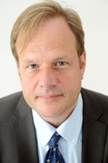 Jan Brosens graduated from the Catholic University Leuven, Belgium in 1990 and pursued postgraduate training in Obstetrics and Gynaecology in the United Kingdom. He became a member of the Royal College of Obstetricians and Gynaecologists in 1995 and a Fellow of the College in 2008. He obtained a Ph.D. from the University of London in 1999, working on the mechanisms of decidualization. He was awarded a Wellcome Trust Clinical Scientist Fellowship in 1998. He joint Imperial College London, first as Chair of Reproductive Sciences (2004) and then Chair of Reproductive Medicine (2008). In May 2011, he was appointed as Chair of Obstetrics and Gynaecology at the University of Warwick. In this capacity, he also leads the Division of Reproductive Health, one of 6 academic divisions that make up Warwick Medical School. He is a member of the editorial boards of Molecular Endocrinology, Hormones & Cancer, Reproductive BioMedicine Online and has authored over 160 papers, as well as numerous book chapters, on clinical and molecular aspects of reproduction and cancer.
Jan Brosens graduated from the Catholic University Leuven, Belgium in 1990 and pursued postgraduate training in Obstetrics and Gynaecology in the United Kingdom. He became a member of the Royal College of Obstetricians and Gynaecologists in 1995 and a Fellow of the College in 2008. He obtained a Ph.D. from the University of London in 1999, working on the mechanisms of decidualization. He was awarded a Wellcome Trust Clinical Scientist Fellowship in 1998. He joint Imperial College London, first as Chair of Reproductive Sciences (2004) and then Chair of Reproductive Medicine (2008). In May 2011, he was appointed as Chair of Obstetrics and Gynaecology at the University of Warwick. In this capacity, he also leads the Division of Reproductive Health, one of 6 academic divisions that make up Warwick Medical School. He is a member of the editorial boards of Molecular Endocrinology, Hormones & Cancer, Reproductive BioMedicine Online and has authored over 160 papers, as well as numerous book chapters, on clinical and molecular aspects of reproduction and cancer.
Associate Professor Gavin Sacks
 Gavin Sacks is a Clinical Director at IVF Australia in Sydney, and Conjoint Associate Professor at the University of New South Wales. After graduating from the Universities of Cambridge and Oxford, including a DPhil in reproductive immunology at the University of Oxford, he completed training in Obstetrics, Gynaecology and Reproductive medicine in London, and then moved to Sydney in 2005. He has established a recurrent miscarriage clinic at the Royal Hospital for Women. He teaches and examines for the Bachelor of Medicine and Master of Reproductive Medicine degrees, and is an examiner for the membership of the Royal Australian and New Zealand College of Obstetrics and Gynaecology. Gavin has published over 30 research papers, is an Associate Editor for Human Reproduction, and current research interests include repeated IVF failure, recurrent miscarriage, natural killer cell testing and immune therapy.
Gavin Sacks is a Clinical Director at IVF Australia in Sydney, and Conjoint Associate Professor at the University of New South Wales. After graduating from the Universities of Cambridge and Oxford, including a DPhil in reproductive immunology at the University of Oxford, he completed training in Obstetrics, Gynaecology and Reproductive medicine in London, and then moved to Sydney in 2005. He has established a recurrent miscarriage clinic at the Royal Hospital for Women. He teaches and examines for the Bachelor of Medicine and Master of Reproductive Medicine degrees, and is an examiner for the membership of the Royal Australian and New Zealand College of Obstetrics and Gynaecology. Gavin has published over 30 research papers, is an Associate Editor for Human Reproduction, and current research interests include repeated IVF failure, recurrent miscarriage, natural killer cell testing and immune therapy.
Professor Siobahn Quenby
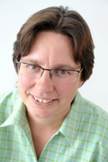 Siobhan Quenby is a Professor of Obstetrics/Honorary Consultant at University Hospitals Coventry and Warwickshire /University of Warwick. She is director of the locally funded Biomedical Research Unit in Reproductive Health. She is clinically active as part of the obstetric team. She runs an implantation and preterm prevention clinics dedicated to the management of and research into recurrent miscarriage, implantation failure and preterm labour prevention. She has over twenty years of experience in research into implantation and recurrent miscarriage and has published over 110 original articles and 22 chapters for academic books. Siobhan is chair of the ESHRE Special Interest Group in Early Pregnancy, a member of the executive committee of the Association of Early Pregnancy Units. Siobhan’s research is funded by NIHR and medical charities.
Siobhan Quenby is a Professor of Obstetrics/Honorary Consultant at University Hospitals Coventry and Warwickshire /University of Warwick. She is director of the locally funded Biomedical Research Unit in Reproductive Health. She is clinically active as part of the obstetric team. She runs an implantation and preterm prevention clinics dedicated to the management of and research into recurrent miscarriage, implantation failure and preterm labour prevention. She has over twenty years of experience in research into implantation and recurrent miscarriage and has published over 110 original articles and 22 chapters for academic books. Siobhan is chair of the ESHRE Special Interest Group in Early Pregnancy, a member of the executive committee of the Association of Early Pregnancy Units. Siobhan’s research is funded by NIHR and medical charities.
Professor Martin Sheldon
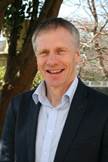 Martin Sheldon is a veterinarian with an interest in the molecular mechanisms of infection and immunity. Martin graduated from the University of Liverpool in 1984, and was in clinical practice for 14 years before moving to the Royal Veterinary College. Martin was awarded his PhD in 2002 from the University of Liverpool, and in 2006 he won a BBSRC Research Development Fellowship. In 2008 he established a laboratory at Swansea University Medical School focussing on reproductive immunology. In 2013, Martin’s research was recognised by the award of FRCVS.
Martin Sheldon is a veterinarian with an interest in the molecular mechanisms of infection and immunity. Martin graduated from the University of Liverpool in 1984, and was in clinical practice for 14 years before moving to the Royal Veterinary College. Martin was awarded his PhD in 2002 from the University of Liverpool, and in 2006 he won a BBSRC Research Development Fellowship. In 2008 he established a laboratory at Swansea University Medical School focussing on reproductive immunology. In 2013, Martin’s research was recognised by the award of FRCVS.
Dr Sarah Stock
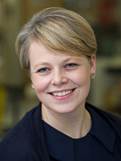 Sarah Stock is Senior Clinical Lecturer and Consultant and Subspecialist in Maternal and Fetal Medicine at the MRC Centre for Reproductive Health at the University of Edinburgh. She went to Manchester University Medical School, and has a PhD from the University of Edinburgh. Her specialist and subspecialist clinical training was undertaken in Edinburgh, with periods in Glasgow, London and Australia. The focus of Sarah’s research is in how inflammation mediates preterm labour and fetal damage, with a particular interest in the role of cationic host defence peptides. Her aim is to improve prediction of preterm birth, and develop strategies that improve neonatal and longer term outcomes.
Sarah Stock is Senior Clinical Lecturer and Consultant and Subspecialist in Maternal and Fetal Medicine at the MRC Centre for Reproductive Health at the University of Edinburgh. She went to Manchester University Medical School, and has a PhD from the University of Edinburgh. Her specialist and subspecialist clinical training was undertaken in Edinburgh, with periods in Glasgow, London and Australia. The focus of Sarah’s research is in how inflammation mediates preterm labour and fetal damage, with a particular interest in the role of cationic host defence peptides. Her aim is to improve prediction of preterm birth, and develop strategies that improve neonatal and longer term outcomes.
Dr Gendie Lash, Newcastle University, UK
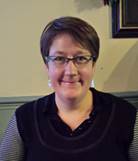 Gendie obtained her undergraduate degree and PhD in Biochemistry from the University of Otago, Dunedin, New Zealand. In 1997 she moved to University of Nottingham, UK, where she spent 2 years working as a post-doctoral fellow examining the role of VEGF-A in trophoblast biology. She then moved to Queen’s University, Kingston, Ontario, Canada where she spent 3 years working on trophoblast invasion and hypoxia. In 2002, she moved to Newcastle University, UK where she has been working on various aspects of trophoblast invasion and more recently spiral artery remodelling with a focus on the role of uterine natural killer cells and macrophages in these processes. In addition, she has an interest in spiral artery development in the non-pregnant endometrium and how aberrant development of these vessels contributes to poor reproductive health. Gendie is on the editorial boards of Biology of Reproduction and Journal of Reproductive Immunology and is the Editor of Trophoblast Research, supplement to Placenta.
Gendie obtained her undergraduate degree and PhD in Biochemistry from the University of Otago, Dunedin, New Zealand. In 1997 she moved to University of Nottingham, UK, where she spent 2 years working as a post-doctoral fellow examining the role of VEGF-A in trophoblast biology. She then moved to Queen’s University, Kingston, Ontario, Canada where she spent 3 years working on trophoblast invasion and hypoxia. In 2002, she moved to Newcastle University, UK where she has been working on various aspects of trophoblast invasion and more recently spiral artery remodelling with a focus on the role of uterine natural killer cells and macrophages in these processes. In addition, she has an interest in spiral artery development in the non-pregnant endometrium and how aberrant development of these vessels contributes to poor reproductive health. Gendie is on the editorial boards of Biology of Reproduction and Journal of Reproductive Immunology and is the Editor of Trophoblast Research, supplement to Placenta.
Dr Roberta Bulla
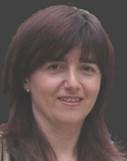 Roberta Bulla has a degree in Biology, University of Trieste, in 1993. - PhD Degree in Experimental and Clinical Pathology in 2002 - University researcher of Immunology at the Medical Faculty of the University of Trieste since 2006. Her main research interest has been in the study of the complement system in defence and tissue and vascular remodelling with particular interest in the role of the complement system in reproductive immunology and recently in tumour immunology. On these topics she is author of about 40 peer-reviewed publications (H index 16).
Roberta Bulla has a degree in Biology, University of Trieste, in 1993. - PhD Degree in Experimental and Clinical Pathology in 2002 - University researcher of Immunology at the Medical Faculty of the University of Trieste since 2006. Her main research interest has been in the study of the complement system in defence and tissue and vascular remodelling with particular interest in the role of the complement system in reproductive immunology and recently in tumour immunology. On these topics she is author of about 40 peer-reviewed publications (H index 16).
Dr Dionne Tannetta
 Dionne Tannetta is a Senior Postdoctoral Research Scientist at Oxford University Nuffield Department of Obstetrics and Gynaecology. For the past 14 years, she has worked in the lab of Prof Ian Sargent and Prof Chris Redman, studying syncytiotrophoblast derived vesicles and their role in preeclampsia pathophysiology. Her work has investigated the biological effects of these vesicles on endothelium, immune cell and platelet function and characterisation of their size and protein cargo using novel methods. Her current work is focussed on improved preparation and characterisation of physiologically relevant syncytiotrophoblast derived vesicles, using dual placental lobe perfusion of both normal and PE placentas.
Dionne Tannetta is a Senior Postdoctoral Research Scientist at Oxford University Nuffield Department of Obstetrics and Gynaecology. For the past 14 years, she has worked in the lab of Prof Ian Sargent and Prof Chris Redman, studying syncytiotrophoblast derived vesicles and their role in preeclampsia pathophysiology. Her work has investigated the biological effects of these vesicles on endothelium, immune cell and platelet function and characterisation of their size and protein cargo using novel methods. Her current work is focussed on improved preparation and characterisation of physiologically relevant syncytiotrophoblast derived vesicles, using dual placental lobe perfusion of both normal and PE placentas.
Dr Peggy Petroff
 Peggy Petroff studied in the pre-veterinary medicine programs at the University of Delaware and Virginia Tech as an undergraduate student when she took an interest in reproductive physiology and immunology. She moved to Ohio State University in 1992 to complete her Master’s and Doctor of Philosophy degrees in Joy Pate’s lab, investigating immune –related mechanisms of luteolysis in dairy cattle. From there, Dr. Petroff joined the lab of Joan Hunt as a postdoctoral fellow at the University of Kansas Medical Center to learn about the human and mouse placentas, focusing on mechanisms of maternal immune tolerance to the semiallogeneic fetus. She remained at KUMC, progressing to the rank of Associate Professor with Tenure in the Department of Anatomy and Cell Biology. In 2015, she moved her lab to Michigan State University, where she continues her work on maternal-fetal immunology as well as autoimmune disease-related infertility. Her current appointment at MSU as Associate Professor is within the College of Veterinary Medicine, Departments of Pathobiology & Diagnostic Investigation, and Microbiology and Molecular Genetics.
Peggy Petroff studied in the pre-veterinary medicine programs at the University of Delaware and Virginia Tech as an undergraduate student when she took an interest in reproductive physiology and immunology. She moved to Ohio State University in 1992 to complete her Master’s and Doctor of Philosophy degrees in Joy Pate’s lab, investigating immune –related mechanisms of luteolysis in dairy cattle. From there, Dr. Petroff joined the lab of Joan Hunt as a postdoctoral fellow at the University of Kansas Medical Center to learn about the human and mouse placentas, focusing on mechanisms of maternal immune tolerance to the semiallogeneic fetus. She remained at KUMC, progressing to the rank of Associate Professor with Tenure in the Department of Anatomy and Cell Biology. In 2015, she moved her lab to Michigan State University, where she continues her work on maternal-fetal immunology as well as autoimmune disease-related infertility. Her current appointment at MSU as Associate Professor is within the College of Veterinary Medicine, Departments of Pathobiology & Diagnostic Investigation, and Microbiology and Molecular Genetics.
